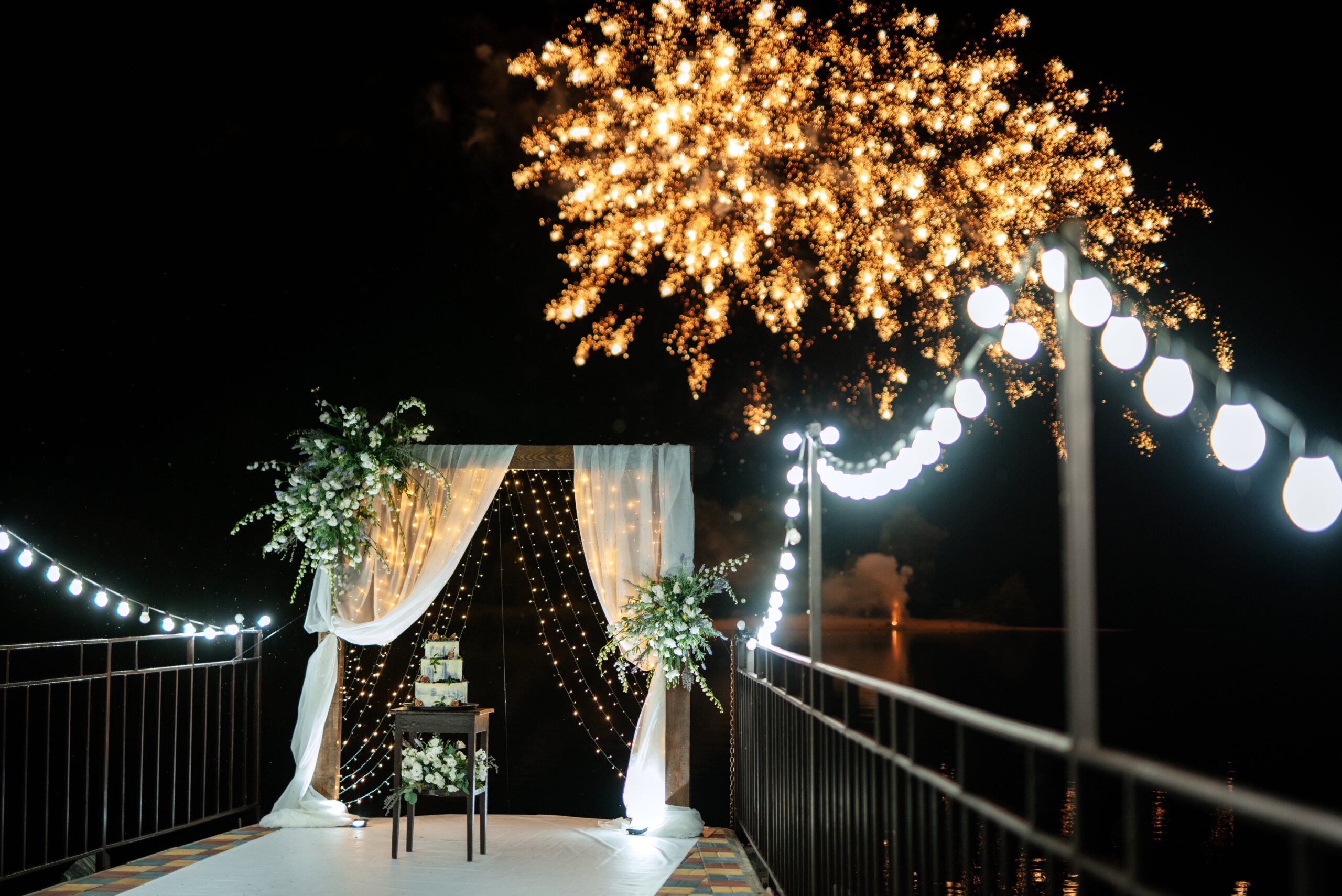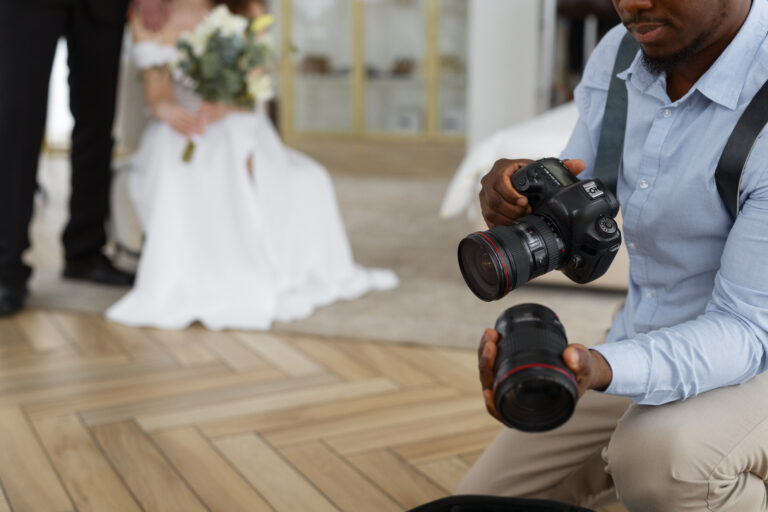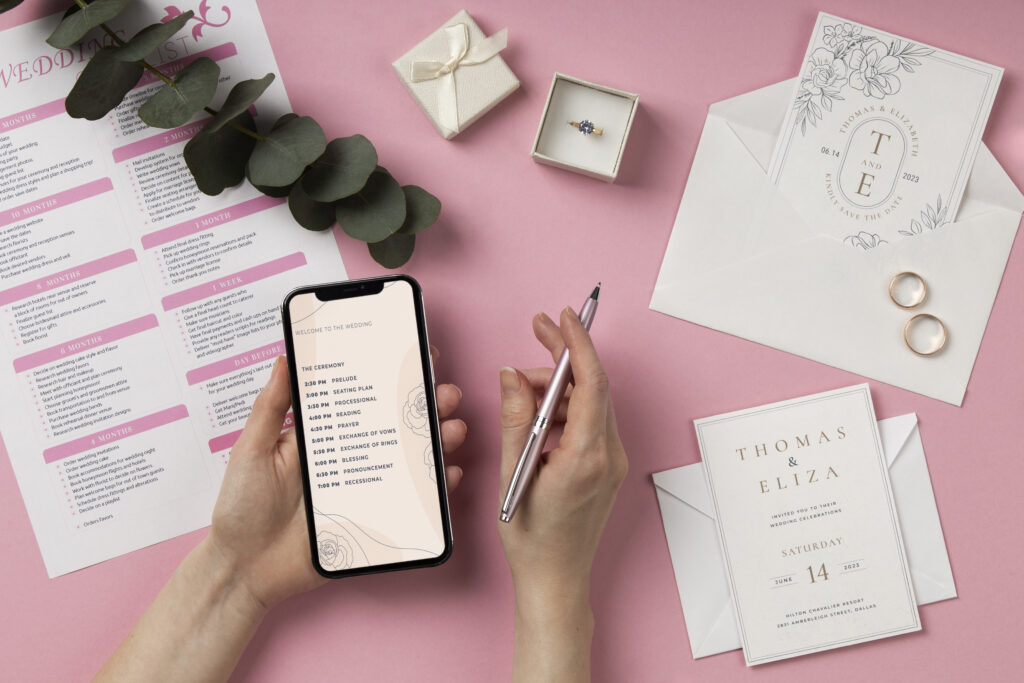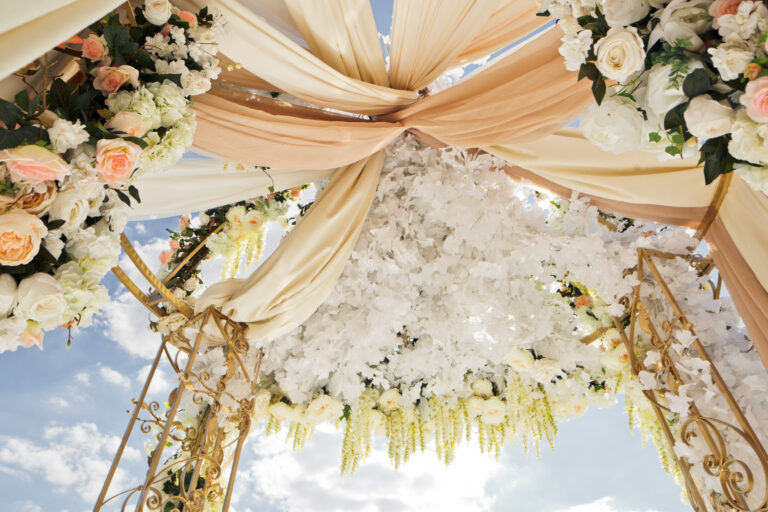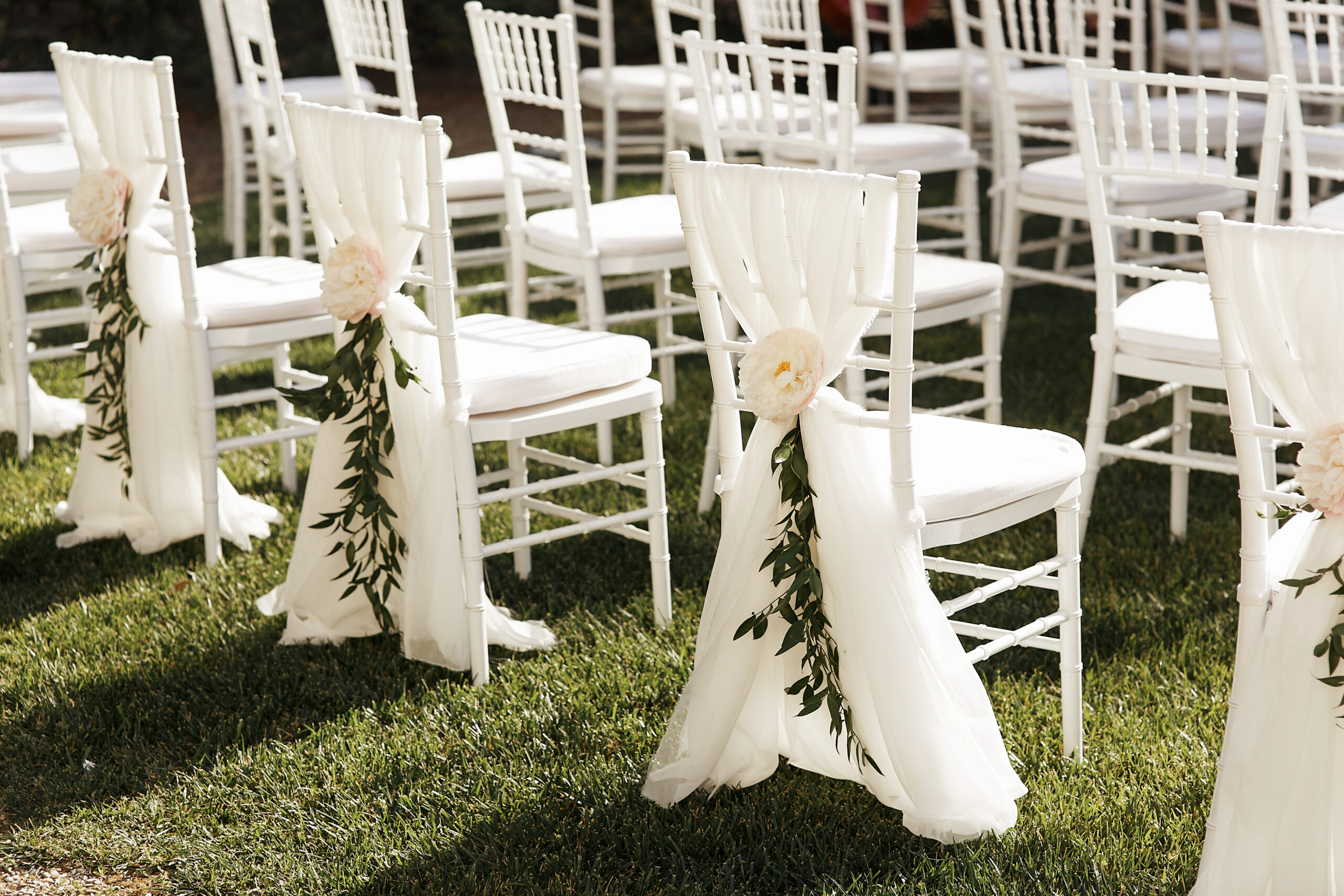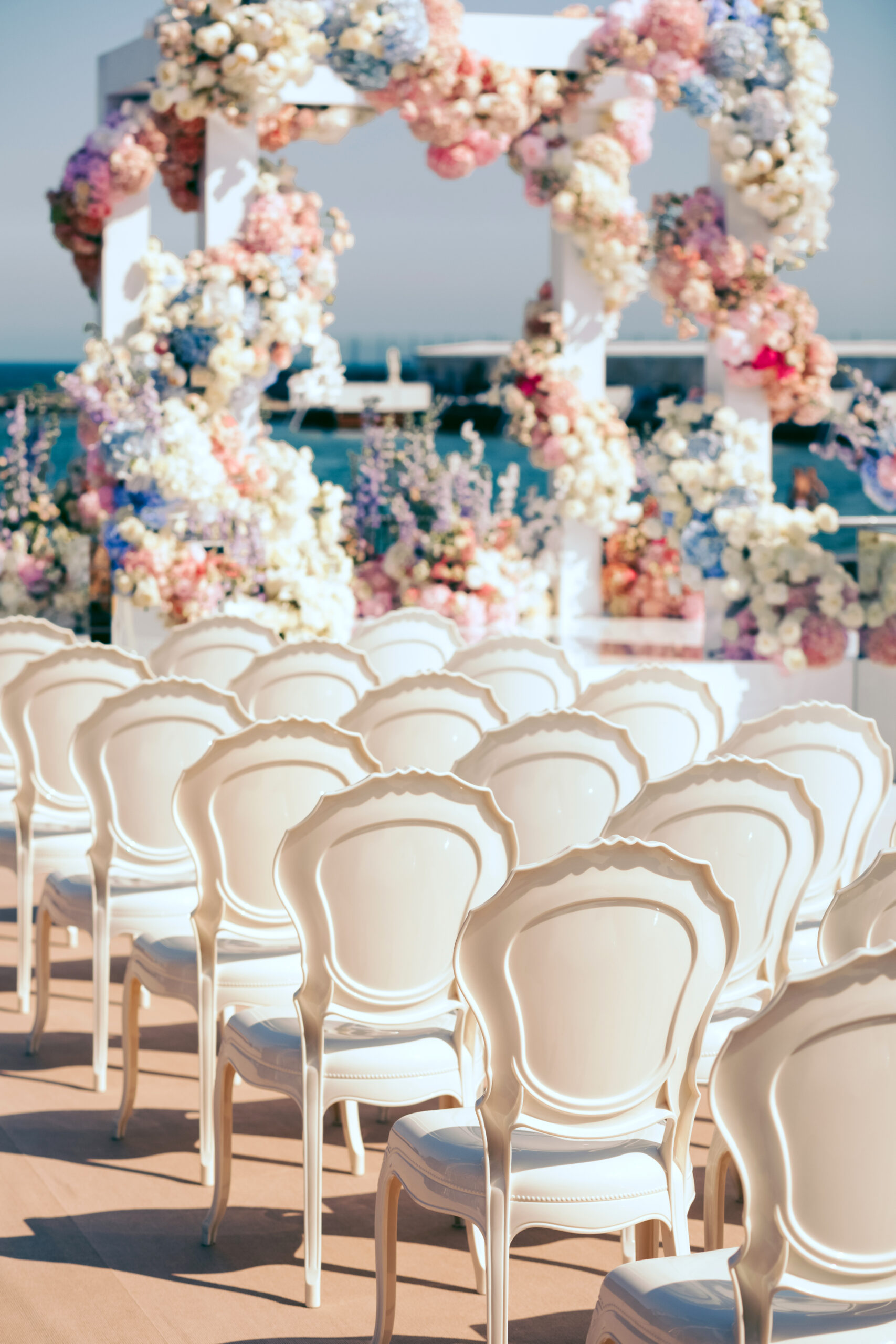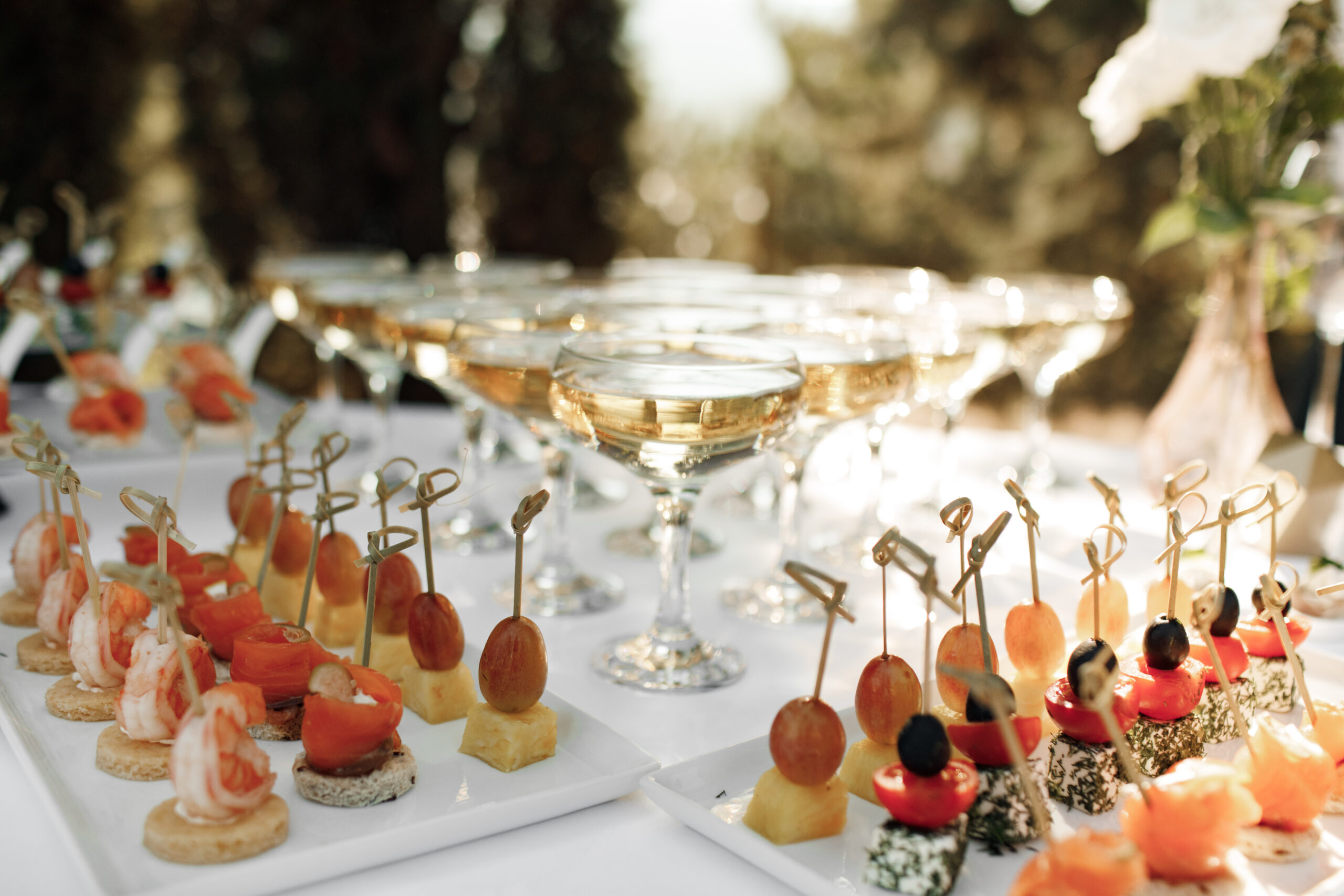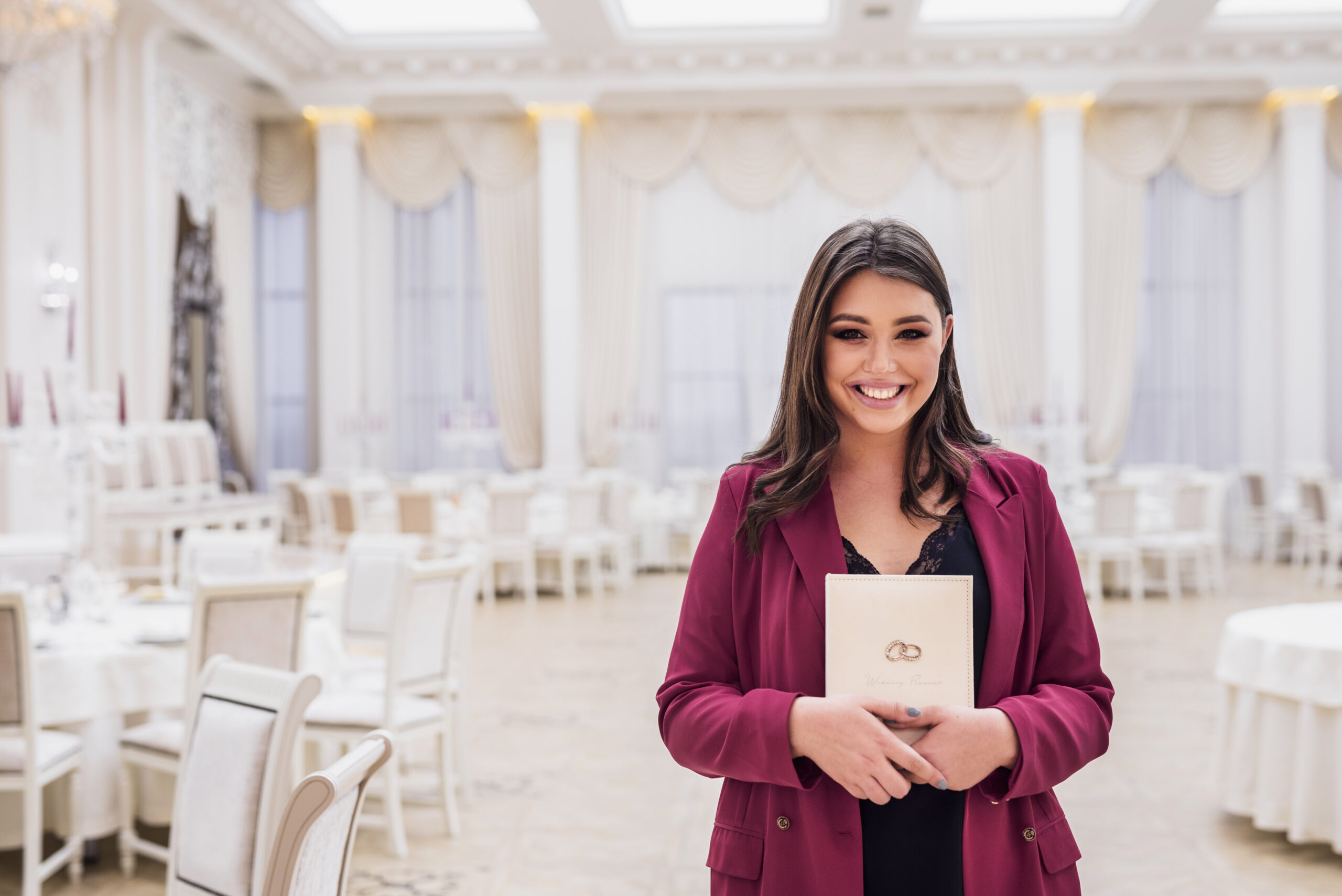Want to build your career as a wedding planner
Are you planning a beautiful outdoor wedding? Don’t forget to consider the importance of enchanting outdoor wedding lighting. Lighting can greatly impact the mood and atmosphere of your special day, creating a dreamy ambiance that will leave your guests in awe.
In this article, we will explore different types of outdoor wedding lighting, discuss placement strategies for maximum impact, and provide valuable tips on powering your lights.
Plus, we’ll give you some insight into why hiring a professional lighting designer can make all the difference in creating a truly magical experience.
Let’s dive in and illuminate your wedding day!
Understanding the Importance of Outdoor Wedding Lighting
When it comes to planning your outdoor wedding, lighting should be at the forefront of your mind. Outdoor wedding lighting not only provides practical illumination, but it also sets the mood and creates a romantic atmosphere.
Imagine soft, twinkling lights that cast a warm glow, making your guests feel like they’ve stepped into a fairy tale. And with the right lighting, you can turn an ordinary outdoor space into a breathtaking wonderland.
Setting the Mood with Light
The right lighting can instantly transform any space, and your wedding venue is no exception. Think about the ambiance you want to create.
Do you picture a romantic and intimate setting, or a more lively and energetic celebration
By strategically placing your outdoor wedding lights, you can set the mood and create a magical atmosphere that will leave a lasting impression.
Picture this: you and your partner exchanging vows under a canopy of twinkling fairy lights, their soft glow illuminating your faces as you declare your love for one another.
The warm, romantic ambiance created by the lights sets the perfect backdrop for this special moment. As the sun sets and the evening progresses, the lights continue to work their magic, creating an enchanting atmosphere for your guests to enjoy.
Not only do outdoor wedding lights set the mood, but they also enhance the natural beauty of your surroundings. Whether you’re getting married in a lush garden, a rustic barn, or on a sandy beach, the right lighting can highlight the unique features of your chosen venue.
Soft uplighting on trees or architectural elements can add depth and dimension to the space, while string lights draped across open spaces create a whimsical and inviting atmosphere.
Safety Considerations for Outdoor Lighting
While creating a dreamy atmosphere is important, safety should always be a priority. When choosing outdoor wedding lighting, make sure to opt for weather-resistant fixtures that are suitable for outdoor use.
The last thing you want is for a sudden rain shower to ruin your carefully planned lighting setup. Weather-resistant lighting ensures that your lights will withstand any unexpected weather conditions, allowing you to focus on enjoying your special day without worry.
It’s also essential to consider the safety of you and your guests when setting up your outdoor wedding lighting. Be cautious of any open flames or exposed wiring that could pose a hazard.
If you choose to incorporate candles or lanterns into your lighting design, ensure that they are securely placed and away from any flammable materials. Consulting with a professional lighting designer or electrician can provide you with expert advice on how to create a beautiful and safe lighting setup.
Remember, outdoor wedding lighting is not just about functionality; it’s about creating an unforgettable experience for you and your guests.
So, take the time to carefully plan and design your lighting scheme, considering both the mood you want to set and the safety precautions necessary. With the right lighting, your outdoor wedding will be a truly magical event that will be remembered for years to come.
Types of Outdoor Wedding Lighting

Now that you understand the importance of outdoor wedding lighting, let’s explore some of the different types of lights that can help you achieve your desired ambiance.
When it comes to planning an outdoor wedding, lighting plays a crucial role in creating the perfect atmosphere. It not only illuminates the space but also sets the mood and enhances the overall aesthetic appeal.
From fairy-tale charm to rustic elegance and glamorous opulence, there are various types of outdoor wedding lighting options to choose from.
String Lights for a Fairy-Tale Feel
Add a sprinkle of magic to your outdoor wedding with string lights. These delicate strands of lights can be hung across pathways, wrapped around trees, or suspended overhead to create a whimsical atmosphere.
String lights are perfect for adding a touch of enchantment and giving your outdoor space a fairy-tale feel.
Imagine walking down a path adorned with twinkling string lights, feeling like you’re in a storybook setting.
The soft glow of these lights creates a romantic and dreamy ambiance, making it an ideal choice for couples who want to infuse their wedding with a sense of wonder and enchantment.
Lanterns for a Rustic Touch
If you’re aiming for a rustic-themed wedding, lanterns are the perfect choice. These charming and versatile light fixtures can be placed on tables, along walkways, or even hung from trees.
Lanterns add a cozy and intimate glow, embracing the natural beauty of your outdoor surroundings.
Picture a rustic garden wedding with lanterns casting a warm and inviting glow. The flickering light creates a cozy and intimate atmosphere, perfect for celebrating love surrounded by nature. Lanterns come in various styles and materials, allowing you to choose the ones that best complement your wedding theme and personal style.
Chandeliers for a Touch of Elegance
If you’re dreaming of a glamorous wedding, chandeliers are the epitome of elegance. Hang a few dazzling chandeliers from trees or gazebos to create a chic and sophisticated atmosphere.
The shimmering light and intricate designs of chandeliers will elevate your outdoor wedding to new heights of opulence.
Imagine dancing under the sparkling glow of chandeliers, feeling like royalty on your special day. The grandeur and sophistication of these lighting fixtures add a touch of luxury to any outdoor wedding setting.
Whether you opt for crystal chandeliers or vintage-inspired designs, they are sure to leave a lasting impression on your guests.
When choosing the right outdoor wedding lighting, consider the overall theme and ambiance you want to create. Each type of lighting offers its unique charm and can transform your outdoor space into a magical and unforgettable setting.
Whether you go for the fairy-tale feel of string lights, the rustic touch of lanterns, or the elegance of chandeliers, the right lighting will enhance the beauty of your outdoor wedding and create memories that will last a lifetime.
Placement of Lights for Maximum Impact
Now that you have an idea of the different types of wedding lighting available, let’s discuss how to strategically place your lights to achieve maximum impact.
Lighting the Pathways
Guide your guests with a beautifully lit pathway. Whether it’s a paved walkway or a natural trail, placing lights along the path not only ensures that everyone can move safely but also creates a captivating entrance for your guests.
Highlighting the Wedding Altar
Your wedding altar should be the focal point of your ceremony, and lighting plays a crucial role in drawing attention to this special area.
Use spotlights or uplights to illuminate the altar, creating a stunning backdrop for your vows.
Illuminating the Reception Area
Set the stage for an unforgettable reception by strategically placing lights throughout your outdoor reception area.
Whether it’s soft lighting to create an intimate atmosphere or vibrant lights to make a statement, ensure that your guests can see and enjoy each moment of the celebration.
Powering Your Outdoor Wedding Lights

Now that you know how to create a dreamy atmosphere with the right type and placement of lights, let’s talk about powering them.
Considering Energy Efficiency
Outdoor lighting can consume a significant amount of energy, so it’s essential to consider energy-efficient options. Opt for LED lights, which use less energy and last longer than traditional bulbs.
By choosing energy-efficient lighting, you not only reduce your environmental impact but also save on energy costs.
Managing Cables and Wires
No one wants unsightly cables and wires marring their outdoor wedding decor. To keep things looking neat and organized, plan your lighting setup in advance and invest in cable management solutions.
This will ensure that your lights shine bright without any distracting clutter.
Hiring a Professional Lighting Designer
While some couples may enjoy DIY wedding projects, hiring a professional lighting designer can make all the difference in creating a truly magical experience.
Benefits of Professional Lighting Design
A professional lighting designer has the expertise and creativity to transform your outdoor space into a captivating wonderland.
With their knowledge of different lighting techniques and equipment, they can bring your vision to life, ensuring that every corner of your venue is beautifully illuminated.
What to Look for in a Lighting Designer
When choosing a lighting designer, look for someone who has experience with outdoor weddings and understands your vision.
Check out their portfolio and testimonials from previous clients. A strong track record and open communication are essential to ensure that your wedding lighting is in capable hands.
Enchanting outdoor wedding lighting will set the stage for an unforgettable celebration. By understanding its importance, exploring different types, strategically placing lights, considering power options, and potentially hiring a professional, you can create a dreamy atmosphere that will leave your guests in awe.
So let your creativity shine, and illuminate your outdoor wedding for a truly magical experience!
FAQs
Q1. What role does lighting play in creating an enchanting outdoor wedding atmosphere?
Lighting sets the mood and transforms the outdoor space into a magical and romantic setting. It accentuates key elements, adds warmth, and creates a dreamy ambiance, enhancing the overall aesthetics of the wedding venue.
Q2. What are the various types of lighting that can be used for an outdoor wedding?
Several lighting options can be used, such as string lights, fairy lights, lanterns, candles, chandeliers, LED bulbs, uplighting, spotlights, and projections. Each type offers a different effect, and a combination of these lights can create a mesmerizing atmosphere.
Q3. What is the best way to illuminate pathways and walkways in an outdoor wedding venue?
Lanterns, pathway stakes with solar lights or LED candles can beautifully illuminate pathways. You can also use string lights or fairy lights wrapped around bushes or strung along the sides of pathways for a whimsical touch.
Q4. How can lighting be used to complement the natural elements of an outdoor wedding venue?
Lighting can be used to enhance the natural beauty of the surroundings. For instance, using warm, soft lights among trees or greenery can create a beautiful contrast, while lighting water features or natural backdrops like cliffs or gardens can create an ethereal effect.
Q5. How can I ensure the lighting design complements the overall theme of the wedding?
Choose lighting that aligns with the theme. For instance, Edison bulbs and rustic lanterns work well for a vintage-themed wedding, while crystal chandeliers or fairy lights suit a more elegant or whimsical theme.

